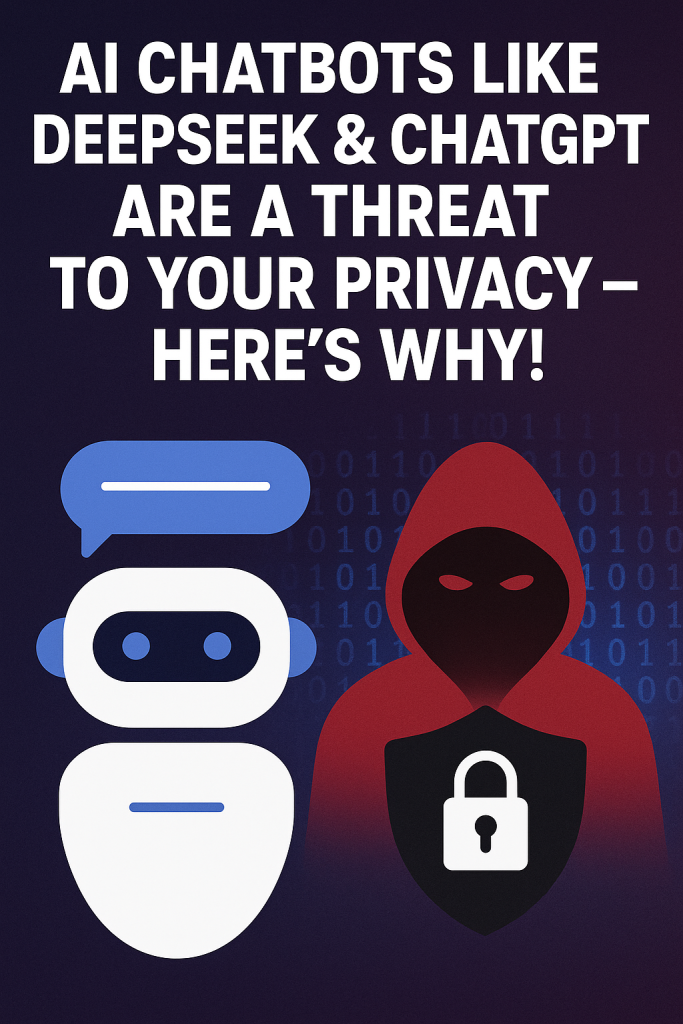
The Hidden Privacy Cost of AI Chatbots: Why Your Conversations Aren’t as Private as You Think
In our rush to embrace AI assistants like ChatGPT, DeepSeek, and other popular chatbots, we’re inadvertently sacrificing something precious: our privacy. Here’s why these “helpful” AI tools pose serious risks to your personal data.
Your Conversations Are Being Recorded and Analyzed
Unlike human conversations that fade from memory, AI chatbots store and analyze every word you type. Recent studies reveal that 45% of AI chatbots actively collect user location data, while most record your conversations, device information, and usage patterns to “improve their services.”
The Data Collection Web
These platforms don’t just store your chats—they create comprehensive profiles by collecting:
- Your conversations and prompts (including deleted ones)
- Location data and IP addresses
- Device information and browsing patterns
- Personal details you share (names, work info, relationships)
- Financial and sensitive information you might accidentally reveal
Real-World Consequences
The privacy risks aren’t theoretical. In 2025, Replika faced a €5 million fine for privacy violations, highlighting how AI companies struggle with data protection. One of the most pressing concerns is unauthorized access to user data—imagine sharing your credit card information with a chatbot, only to have it fall into the wrong hands.
The Training Data Trap
Every conversation you have trains these AI systems to become “smarter,” but at what cost? This data is used to train and improve the AI, making it smarter, but also potentially exposing you, your family or your business to cybercrime.
Corporate and Government Access
Your “private” conversations aren’t protected by attorney-client privilege or doctor-patient confidentiality. These companies can:
- Share data with government agencies when requested
- Use your conversations for product development
- Potentially sell anonymized data to third parties
- Face data breaches that expose your information
What You Can Do
- Limit Personal Information: Never share passwords, Social Security numbers, financial details, or other sensitive data
- Review Privacy Settings: Most platforms allow you to disable data saving—use these controls
- Use Alternative Services: Consider privacy-focused alternatives or local AI tools
- Read Terms of Service: Understand what you’re agreeing to before using these services
- Regular Data Deletion: Periodically delete your conversation history where possible
The Bottom Line
AI chatbots offer convenience, but they’re not neutral tools—they’re data collection systems designed to learn from you. Before typing your next question, ask yourself: “Would I be comfortable if this conversation became public?”
Your privacy is worth more than the convenience of an AI assistant. Choose wisely.
Share this post to help others understand the privacy implications of AI chatbots. Awareness is the first step toward protecting our digital privacy.


Leave a Reply